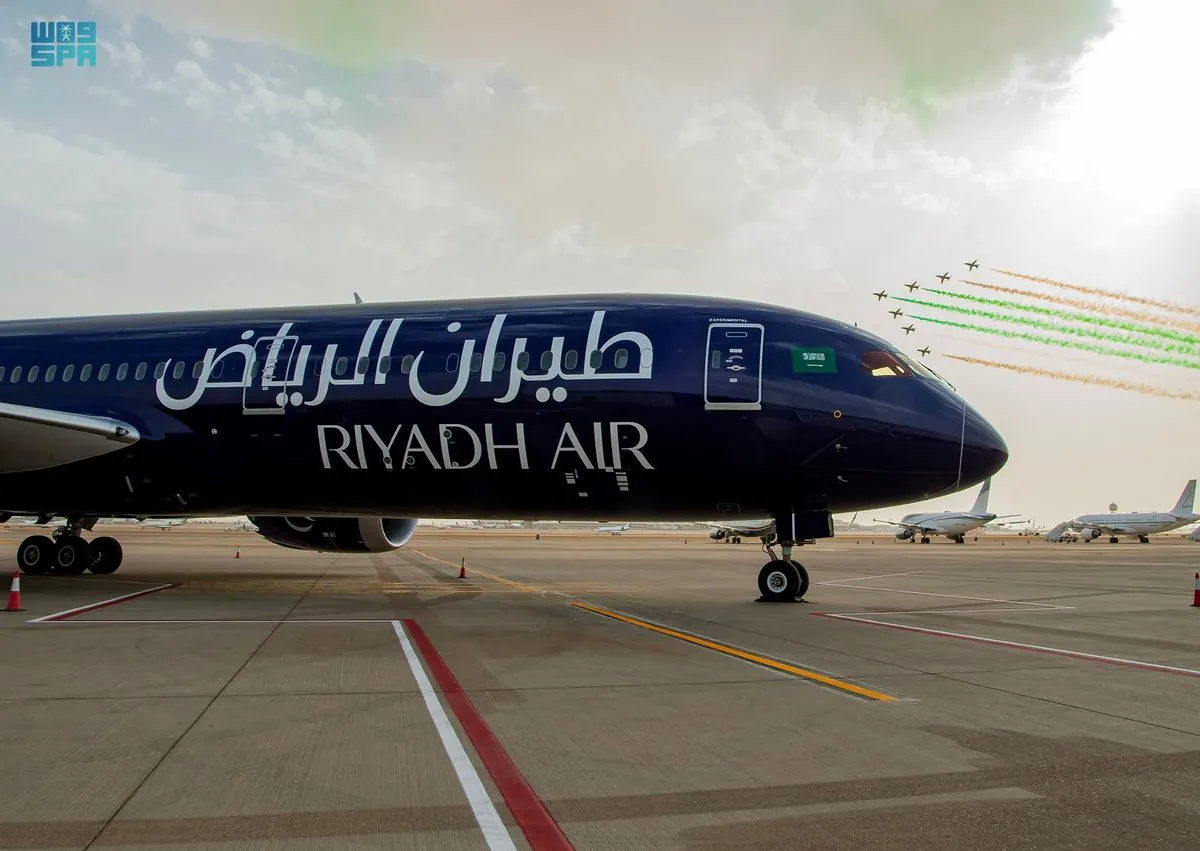Saudi Arabia's Riyadh Air Sparks Talent War for British Pilots
Riyadh Air, Saudi Arabia's new luxury airline, is intensifying competition for aviation talent, particularly targeting British pilots. This move is impacting major UK carriers and reshaping the industry's recruitment landscape.

The aviation industry is experiencing a significant shift as Saudi Arabia's new luxury airline, Riyadh Air, intensifies the competition for skilled pilots, particularly from the United Kingdom. This development is causing ripples across major British carriers, including British Airways, Virgin Atlantic, and easyJet.
The British Airline Pilots' Association (Balpa) has reported that Riyadh Air's recruitment drive, along with efforts from other Gulf carriers like Emirates, Qatar Airways, and Etihad, is having a noticeable impact on the UK aviation sector. This situation is exacerbated by the global pilot shortage, which is expected to reach 80,000 by 2032, with the Middle East alone projected to need 54,000 new pilots by 2040.
Amy Leversidge, Balpa's general secretary, highlighted the challenge faced by British airlines in retaining staff due to the attractive offers from Gulf carriers. These Middle Eastern airlines are hosting recruitment events in the UK, enticing pilots with generous salaries and benefits. The UAE's 0% personal income tax rate is a particularly appealing factor for many expatriates.
Riyadh Air, part of Saudi Arabia's Vision 2030 initiative to diversify the economy beyond oil, is aggressively building its workforce from the ground up. The airline has already received 15,000 pilot applications globally and aims to have 700 flight crew within three years. Led by British aviation veteran Tony Douglas, who previously held leadership roles at Abu Dhabi Airports and Etihad Airways, Riyadh Air plans to expand its fleet to 200 jets within five years.

British talent has made significant inroads into Riyadh Air's management, with the airline's pilot team including a former chief pilot from Virgin Atlantic. This talent acquisition strategy aligns with Saudi Arabia's broader economic goals, as the aviation industry currently contributes about 3.6% to the country's GDP.
In response to this talent war, British Airways and Virgin Atlantic have hosted their own recruitment events in the Gulf. However, these efforts have seen limited success, with many pilots reluctant to leave the region's favorable tax regimes. This situation underscores the need for UK airlines to focus on retention strategies and improve employee satisfaction.
Balpa has been proactive in addressing these challenges, negotiating three-year pay deals with major UK airlines since the start of 2023. However, Leversidge emphasizes that airlines need to offer more than just competitive salaries:
"Airlines need to focus on retention and that's an argument we're making in our negotiations. They need to look for the early warning signs that people might not be happy, for example in the results of employee-engagement surveys."
The aviation industry's recovery from the COVID-19 pandemic, which caused a 60% reduction in global air traffic in 2020, adds another layer of complexity to this talent war. As the sector rebounds, with global aviation expected to return to profitability in 2024, the competition for experienced pilots is likely to intensify further.
This situation presents both challenges and opportunities for the aviation industry. While UK airlines grapple with retention issues, the increased mobility of pilots could lead to a more dynamic and globally integrated workforce. As the industry evolves, airlines will need to balance competitive compensation with improved work-life balance and career development opportunities to attract and retain top talent in this increasingly competitive landscape.


































